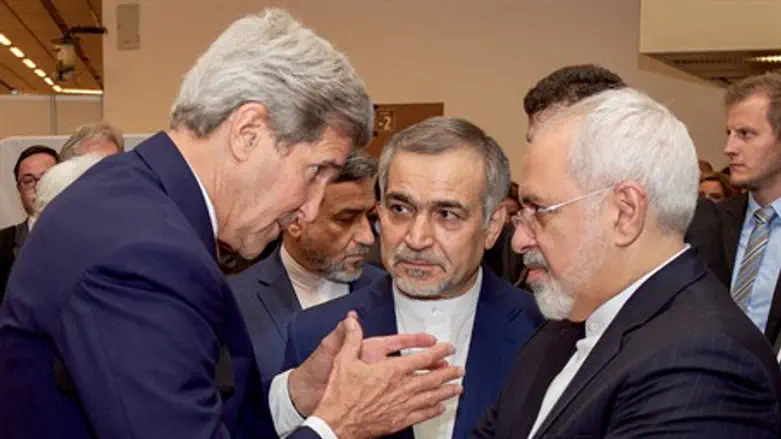
In the wake of a prisoner swap between the US and Iran on Sunday, that took place the same day America gave Tehran $1.7 billion in taxpayer funds, concerns are high that the transfer was a ransom payment, reports the Wall Street Journal late Thursday.
At nearly the same time that the Islamic regime in Iran released five US prisoners in return for seven Iranian prisoners from America, the US Treasury Department wired the massive funds to Tehran. Shortly afterwards the controversial nuclear deal was implemented, with Iran receiving a windfall in sanctions relief that US Secretary of State John Kerry admitted Thursday will go to terror.
The $1.7 billion payment ended a 35-year-old legal battle over a $400 million arms contract with Iran's Shah Mohammad Reza Pahlavi, which was never delivered due to the Islamic revolution of 1979. The White House agreed to pay a whopping $1.3 billion in interest on top of the original contract, claiming by doing so it was avoiding a greater financial loss at The Hague.
US President Barack Obama tried to justify the transfer on Sunday, saying, "Iran will be returned its own funds, including appropriate interest, but much less than the amount Iran sought."
However, Gen. Mohammad Reza-Naghdi, commander of Iran's paramilitary Basij force, on Wednesday told state media that the transfer was a key factor in the decision to release the American prisoners, indicating it was indeed ransom pay.
"Taking this much money back was in return for the release of the American spies and doesn’t have to do with the (nuclear) talks,” said Reza-Naghdi. "The way to take our rights back from the arrogants (Americans) is to become powerful, and we must grow stronger and stronger every day."
The White House has claimed that talks to settle the arms contract payment and prisoner swap talks were kept separate.
However, top State Department diplomats including Kerry and Middle East specialist Brett McGurk worked to ensure the $1.7 billion payment was ready by last weekend in time for the prisoner swap, according to sources involved in the matter who spoke with the Wall Street Journal.
McGurk was reportedly involved in getting the payment completed as early as a month ago, and Kerry announced the settlement on Sunday at nearly the same time as the release of the American prisoners.
Republican lawmakers have responded by demanding an inquiry, and also noted that Iran received far more in the prisoner swap deal by getting seven Iranians freed and extradition proceedings on another 14 dropped, in exchange for five Americans.
"There’s no way the recent events occurred randomly," said Representative Mike Pompeo (R-KS), who wrote to Kerry this week about the payment. "We will do our best to find out if this was in our interest."
Some lawmakers have also asked why the White House didn't use the $1.7 billion to compensate US terror victims, given that Iran has lost many US court cases over terror attacks it supported and funded, but is refusing to pay up.